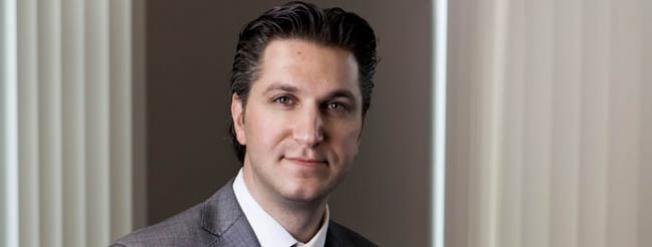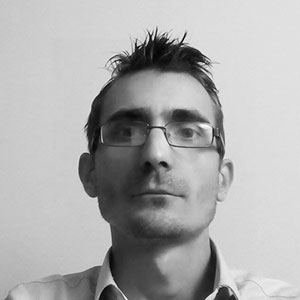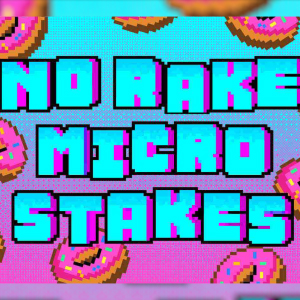The Story of David Baazov, Amaya’s CEO
4 weeks ago

28 Oct
David Baazov, CEO of Amaya Group, has become one of the most talked-about figures in the online gambling world. Leading the company that’s reshaping online poker and gaming, Baazov’s influence is undeniable.
But who is the man behind Amaya’s meteoric rise? Forbes shed light on his remarkable journey in a recent feature.
Man with a dream
Baazov could probably best be described as a ‘man with a dream.’ He is the kind of guy who sees an opportunity and goes after it, no matter how ludicrous or unrealistic it may seem. And that is exactly how he got Amaya from being a penny stock company to the online gambling titan that it is today.
David dropped out of school when he was 16. The reason, you ask? He was bored. His conservative parents responded with kicking him out in the cold, yet he remained undeterred in pursuing his vision, even if it was somewhat unclear at the time. Bit by bit, he built up his own computer reselling outfit in Montreal and after a while he caught a break. His company signed a $20 million contract with the Montreal public library.
Making headway
After exiting the hardware sector, David Baazov shifted his focus to software, launching Amaya. The company’s first success was an electronic poker table that allowed real-world play without a dealer. With strong early growth and $6 million in revenue by 2010, Amaya entered Canada’s penny stock market.
Two years later, Baazov expanded Amaya’s reach by acquiring Cadillac Jack, a slot machine manufacturer that generated $36 million annually. Around this time, he forged a vital relationship with Blackstone’s GSO credit division—a partnership that would shape Amaya’s future. The company’s stock soon surged from $3.50 to $7.
The big game...
About this time, the idea of buying the Rational Group started to grow in Baazov’s mind. Aware of how big and profitable the company was, and also knowing that PokerStars and the Scheinbergs had legal issues related to the US market, he saw an opportunity and was willing to go for it.
Initially, however, his approaches were swiftly turned down – for two reasons. First of all, Isai Scheinberg wasn’t looking to sell; secondly, Amaya did not have the kind of capital required for this type of transaction – not even close. But Baazov had the game all set up and was just waiting for the go ahead.
The go ahead finally came in the summer of 2013. The Scheinbergs, who were perhaps tired of Baazov’s constant haunting, told him that if he could get them a commitment of $3 billion from a financial firm, they were ready to negotiate. It was music to his ears.
It was like them telling me, "Not to say that you guys forged it, but we got to talk to them directly." David Baazov, Forbes;His relationship with Blackstone’s GSO came in really handy here. David’s previous successes in his dealings with GSO made a deep impression on those in charge of calling the shots, and he got the letter he needed. The Scheinbergs did not expect him to come through.
And the big victory...
By December of 2013, PokerStars was ready to make a deal. The situation with entering the US market was highly complicated by legal matters and the Scheinbergs were ready to move on. After the presentation, where some of the financial information about the company was finally revealed, everybody was impressed. By early 2014, Amaya and Rational had a letter of intent signed and ready. The only matter left to resolve was the price of $4.9 billion.
Those in charge at Blackstone were not sold on the idea just yet. The amount was big and they needed some more convincing. But if there was one thing Baazov knew how to do well, it was to convince people that his ideas were good. Little by little, he got them to buy 11 million common shares of Amaya, paying a huge premium. With some of the other investors, he was able to procure $2.9 billion. For the rest, he had to turn to financial institutions.
It was easily the biggest loan issued against online gambling assets, but the numbers that the Rational Group were able to present simply made it too appealing – even for the banks. David Baazov had his way once again. On August 1st, just two days before his 34th birthday, the sale was completed and a once penny-stock public company was turned into a huge gaming corporation ready to take over the market.
Changes within the Rational Group’s two biggest brands, PokerStars and Full Tilt (Poker), have created a lot of fuss among loyal customers. Rake increases, the launch of Spin & Go’s, and most recently, the introduction of casino games, are raising concerns with many, even with some who have been directly involved with PokerStars for many years, like Victoria Coren.
We didn’t buy Rational because of gambling - we wanted it badly because it had 89 million consumers. I wouldn’t call them players or gamblers–they are consumers." David Baazov, Forbes;However, Amaya’s shares continue to grow in value and Baazov is not making it a secret that his vision for the company is quite different. The biggest asset, he believes, is not in the gambling aspect; the company’s worth is its 89 million consumer base. That is where the real value lies.
What is Mr. Baazov’s end game? It is anybody’s guess, but while the road might not be a very pleasant one, especially for some of the players, it will be an interesting journey to follow.







Comments
You need to be logged in to post a new comment